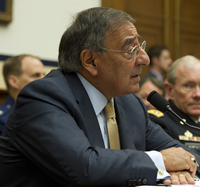The release of President Barack Obama’s strategic guidance to the Department of Defense on Jan. 5 has already unleashed a storm of commentary. The final document, “Sustaining U.S. Global Leadership: Priorities for 21st Century Defense,” was prepared after months of consultations with the national security team and senior military leaders, and is a first attempt to begin prioritizing both defense missions as well as geographic regions that are most vital to U.S. interests. The guidance puts a premium on what might be termed “expeditionary firepower” -- naval and air assets capable of projecting power over a wide area -- and focuses on the Asia-Pacific region as being the part of the world where the United States ought to concentrate its defense assets and attention, followed by the Middle East. At the same time, “long-term stabilization operations,” meaning large-scale interventions with ground forces meant not only to remove a threat but to transform a country, are being downgraded, and the increased focus on the Asian theater will come about by drawing away resources currently earmarked for U.S. defense activities in other parts of the world.
This kind of prioritizing is necessary, especially given the current budgetary pressures facing U.S. military planners. But with it comes the risk of throwing out the baby with the bathwater. Like wounded beasts that when forced to leave the safety of the pack become much more vulnerable to predators, downgraded missions and regions become easy targets for even more-ambitious cost-cutting measures further down the line. When forced to decide, services that are already under enormous pressure to generate fiscal savings will likely decide that further cuts can be taken out of roles and areas that have fallen out of favor. As Fred Kaplan observed, there will be a strong temptation on the part of senior officers to “whack away at the resources” for things that are no longer deemed as “core missions.”
This strategic guidance document will be used to inform the 2013 fiscal year budget for U.S. defense. However, in order to preserve some core U.S. foreign policy objectives, it will be important that further clarification of U.S. strategy take place. In particular, two areas of concern should be included in the discussion.

